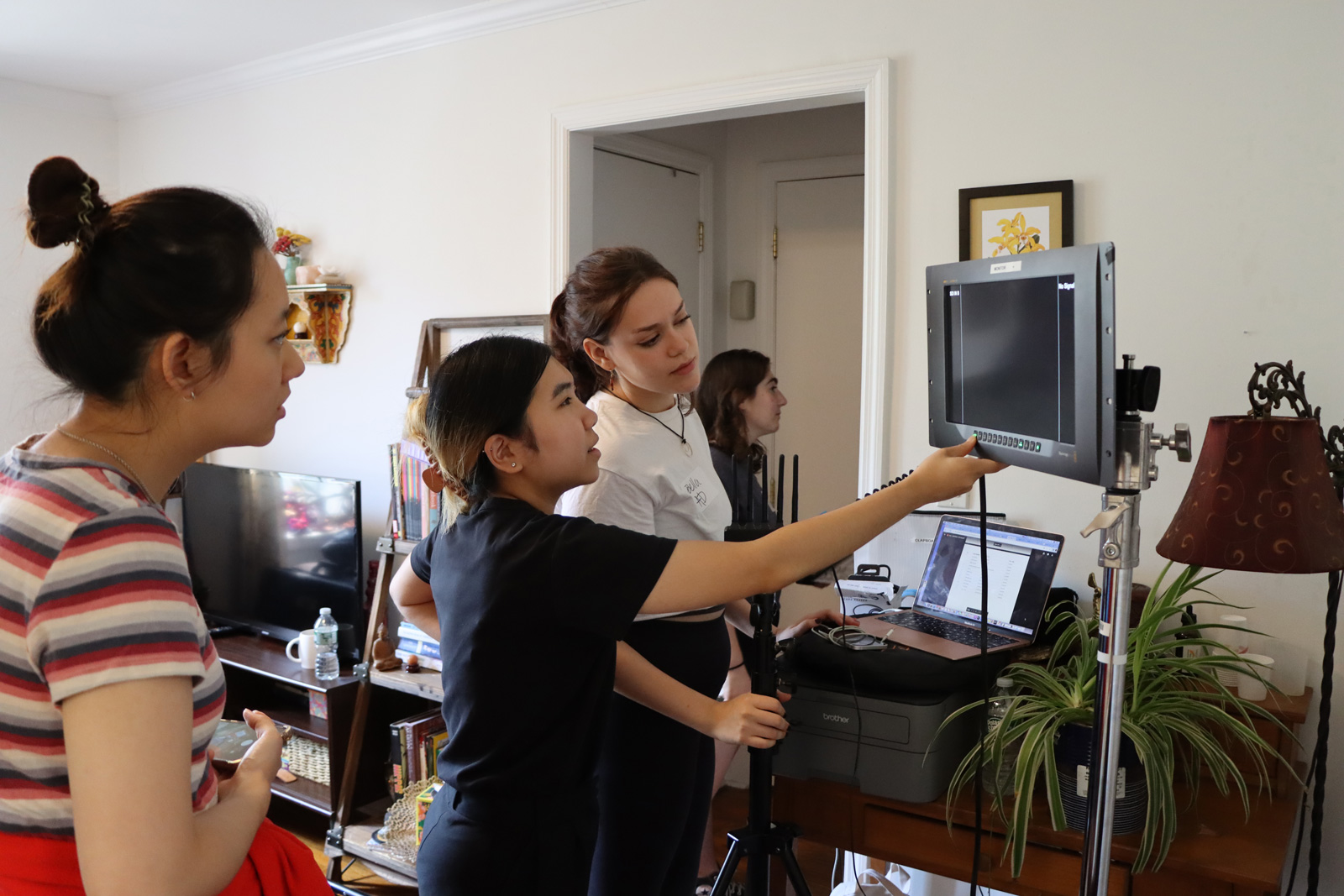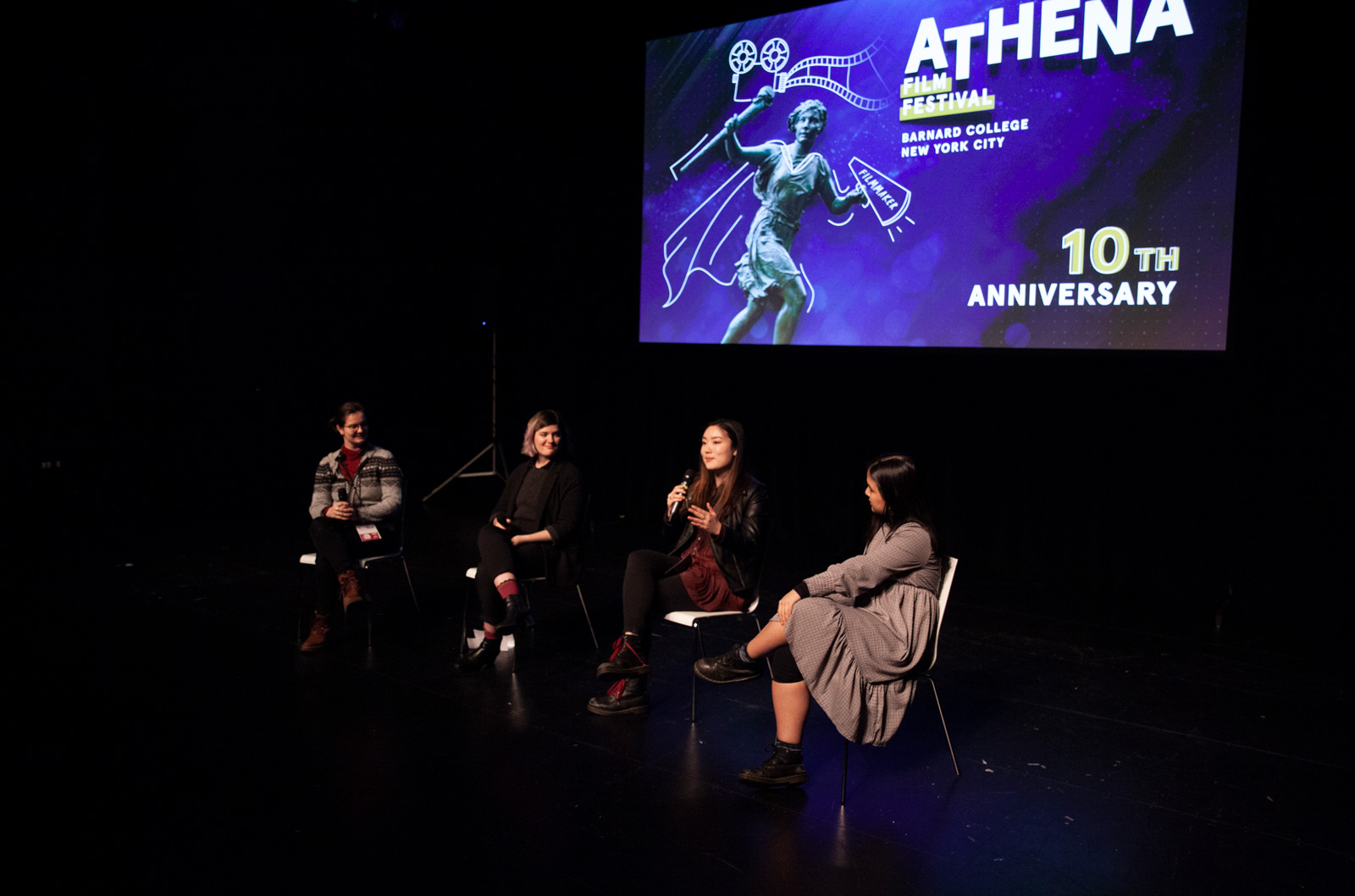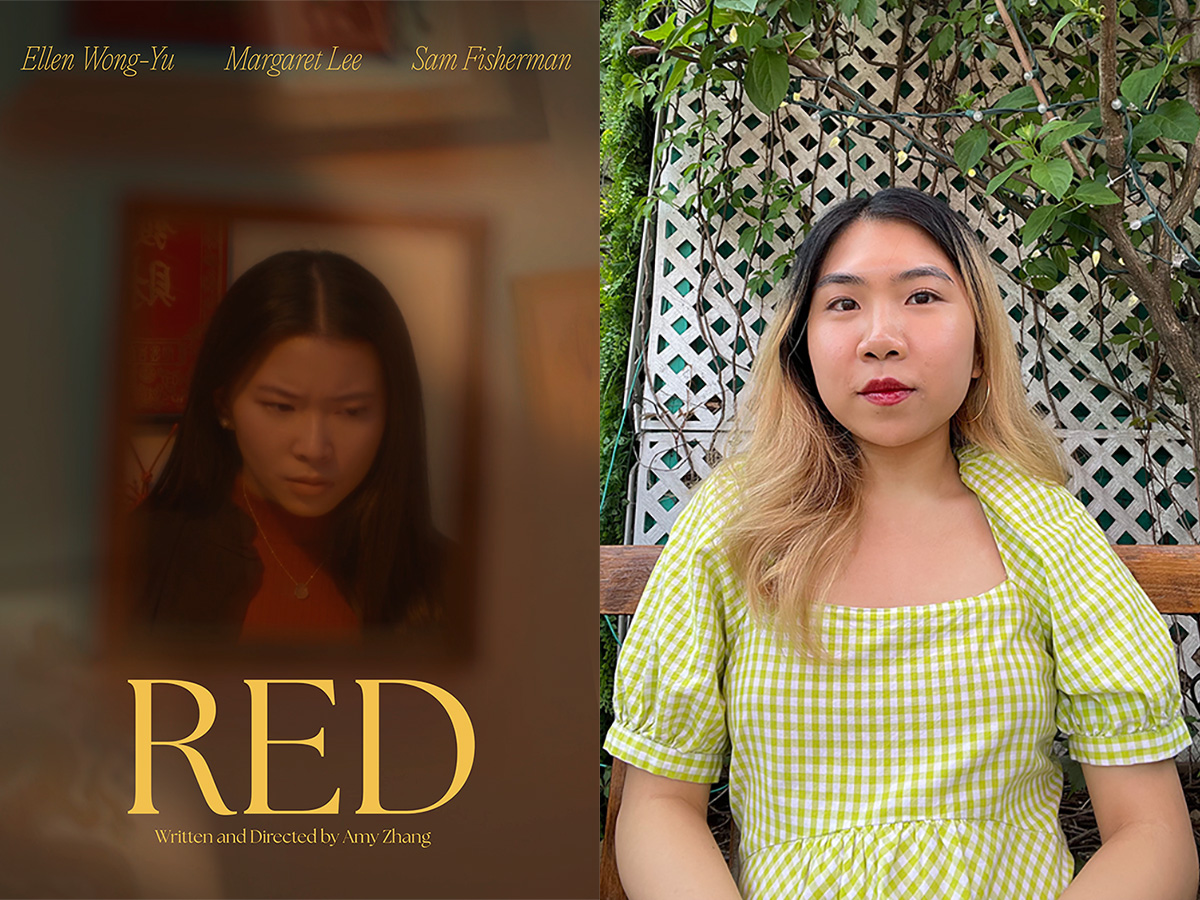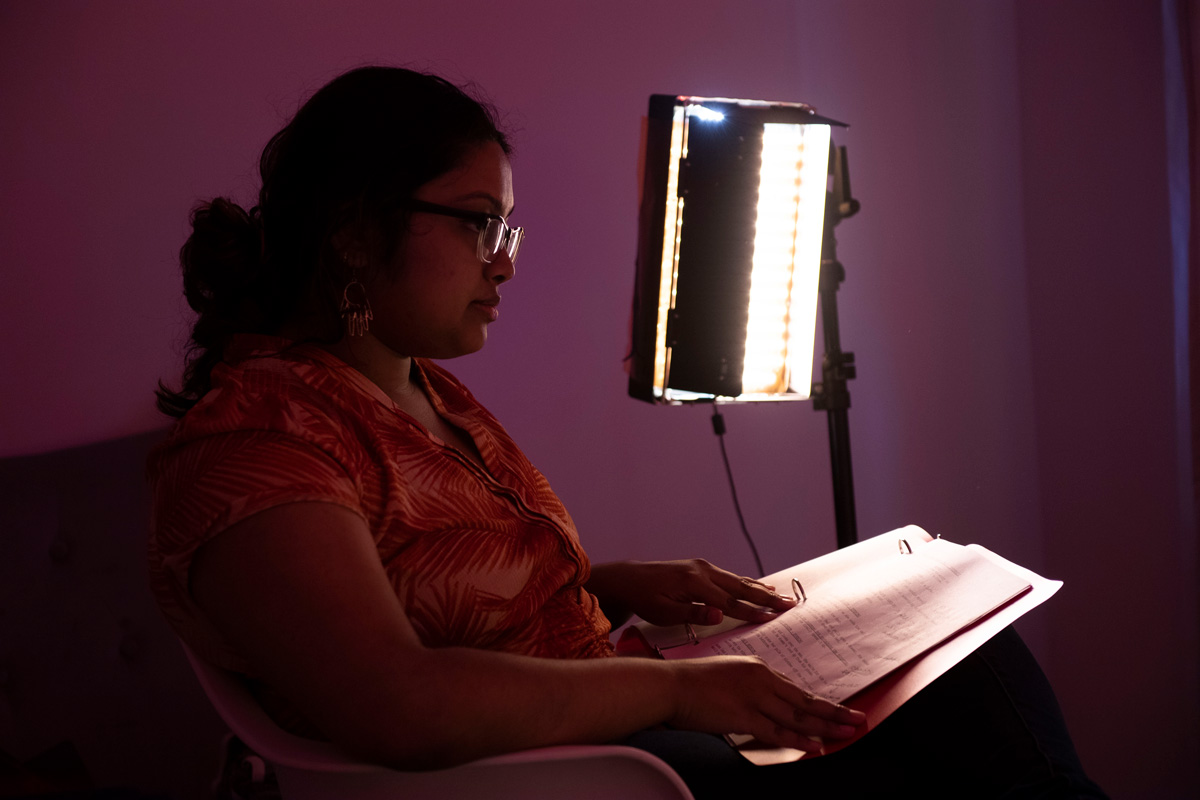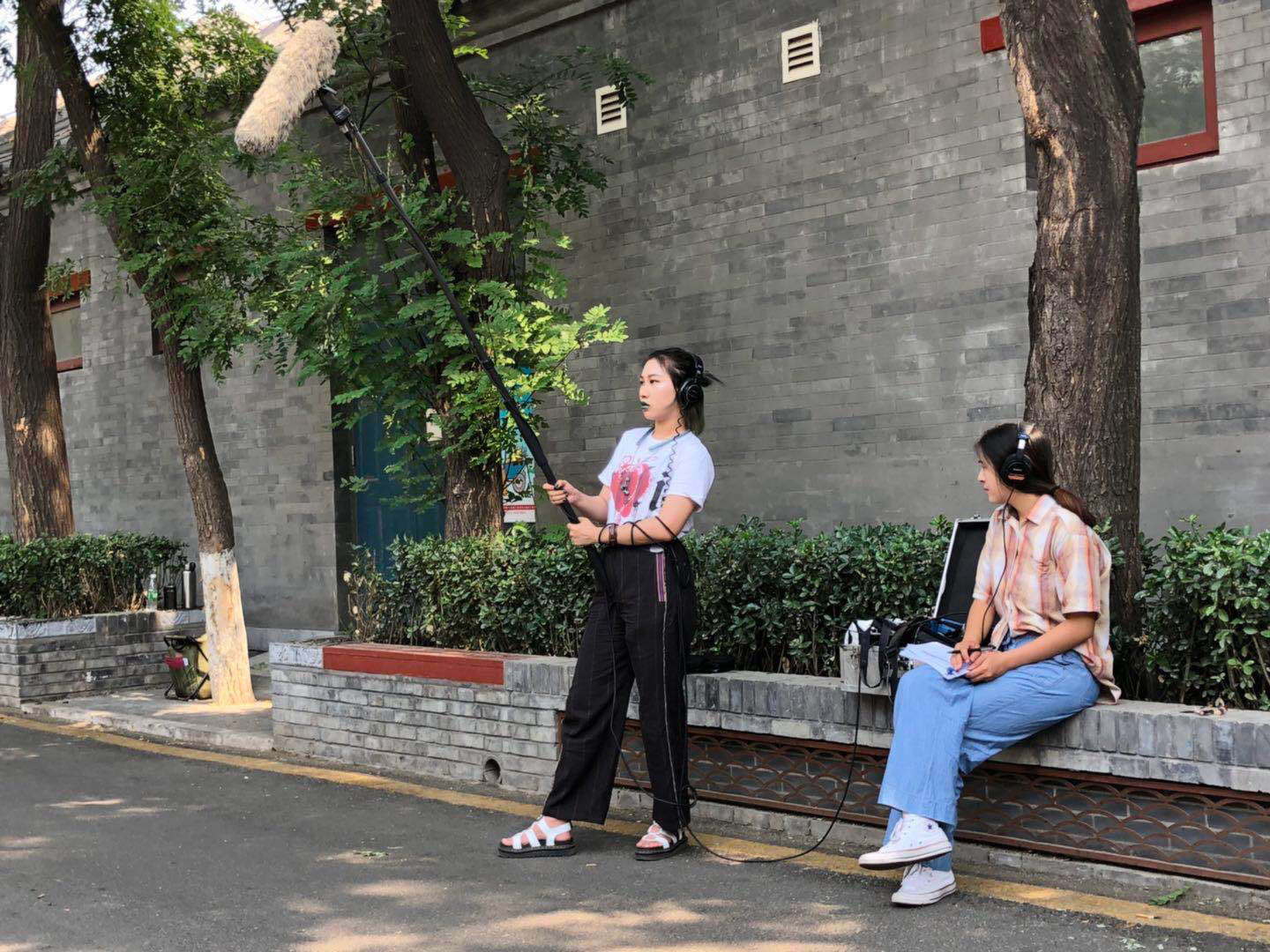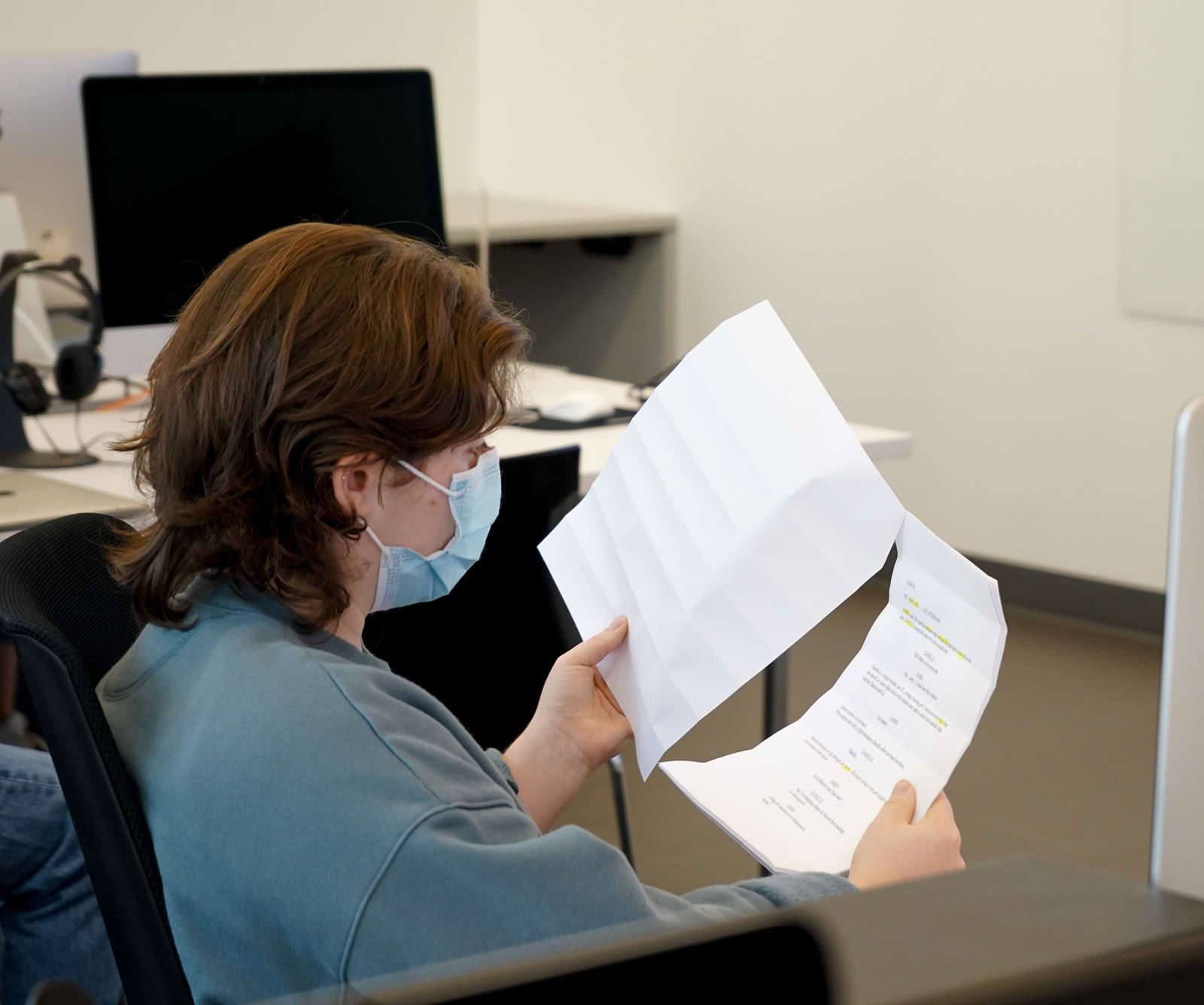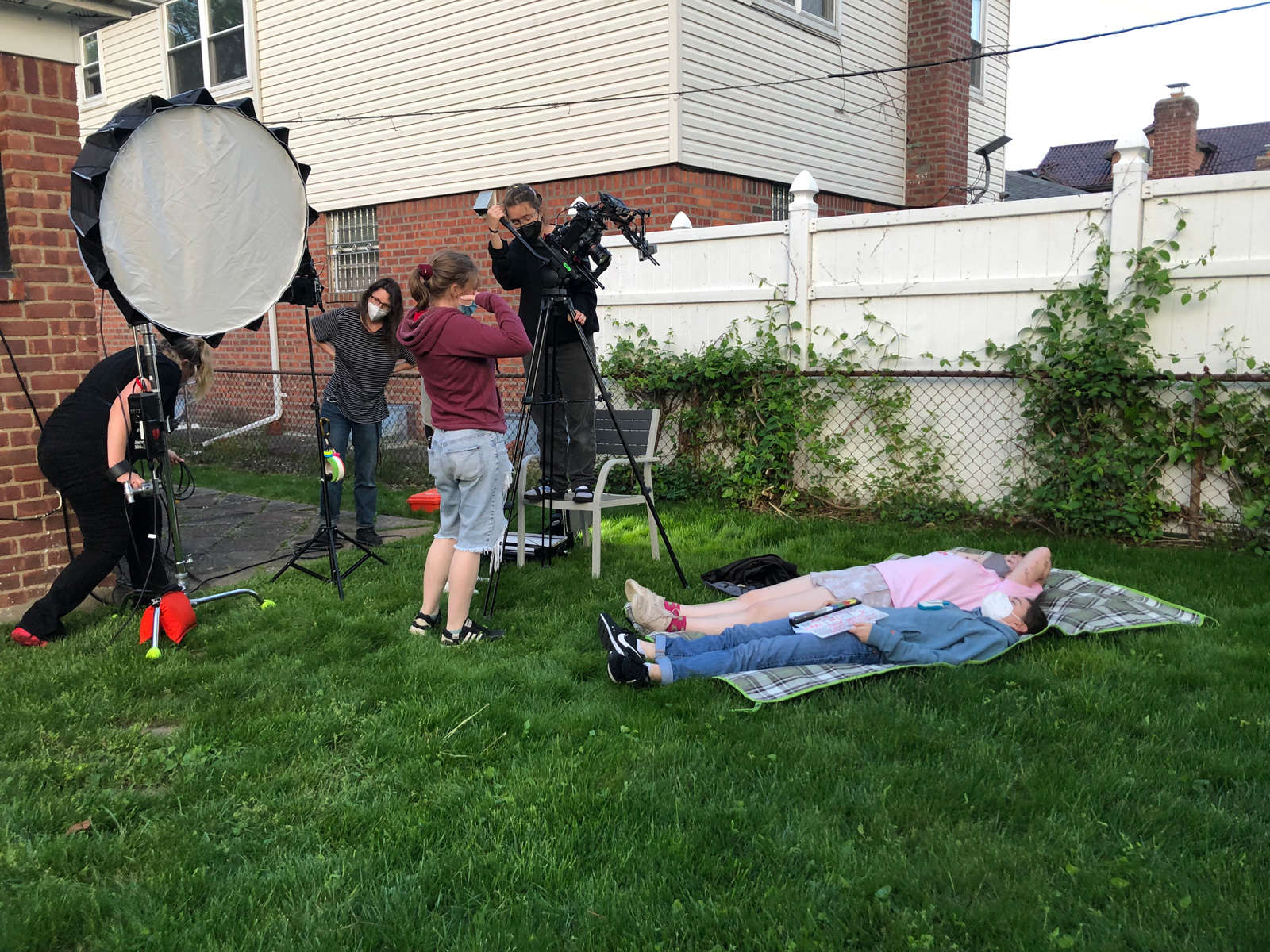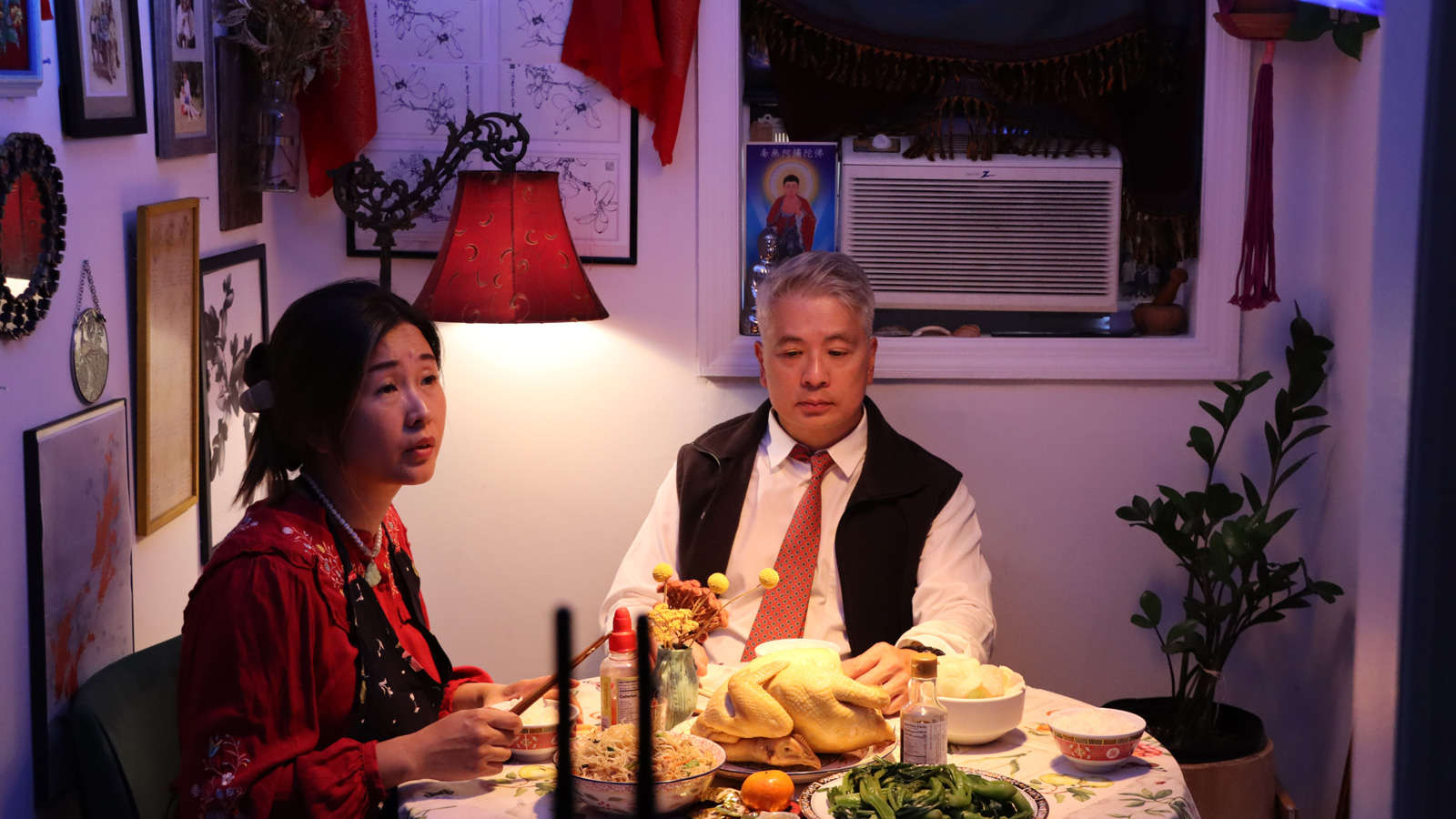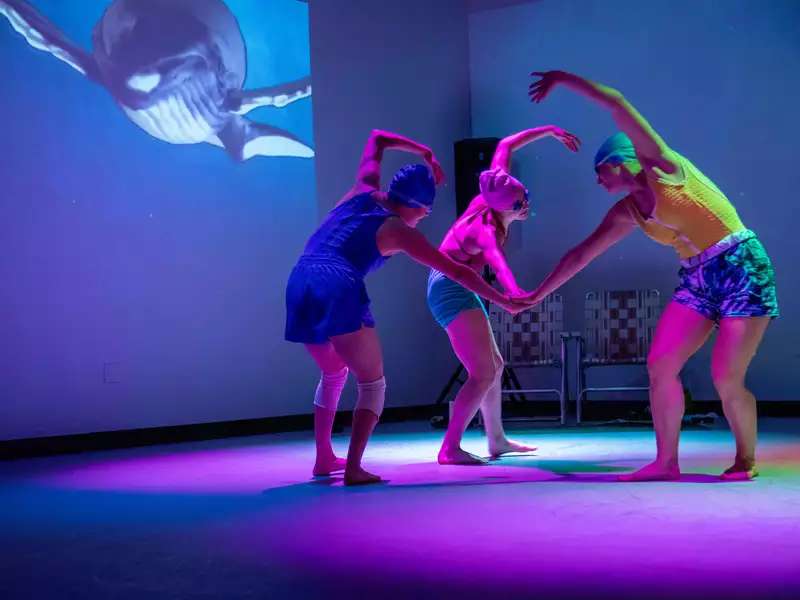
When Rachel James ’17SOA was an undergraduate at the California Institute of the Arts, she participated in a granting and mentorship program that provided the funding and taught her the expertise she needed to create a short narrative film. That film contributed to her admissions application to Columbia’s Film MFA program.
Today, James is the senior associate director of Barnard’s Sloate Media Center, the College’s home for media content creation and research within the Milstein Center for Teaching and Learning. In her position, James realized that for all of the stellar opportunities available to Barnard students, one thing was missing: a resource to fund, guide, and provide them with the technical knowledge needed to create their own film.
Enter the Emerging Filmmaker Mentorship Program (EFMP). “The program was created by founding staff at the Sloate Media Center [established in 2018] in response to the lack of resources and active support available to Barnard students interested in producing and directing films,” said James. Participants exit the yearlong program with practical skills in filmmaking as well as a completed short film that they can submit to film festivals or use in their applications for graduate film programs.
Barnard has a legacy of producing literary juggernauts, and with EFMP, the College is offering the same kind of support to its visual storytellers. Open to all Barnard students, EFMP assists students with the creative process for making a short film — from pre-production to post-production and editing. There’s also one-on-one mentorship and script feedback.
“The mentorship for this program is provided by Media Center staff, who are all filmmakers and media creatives in their own right,” said James. “Two of our current staff members, Syeda Anjum ’21 and Lucy Shauman ’21, are former EFMP mentees who successfully finished amazing films and were therefore perfectly poised to help the program continue to improve and grow as well as speak to the exact experiences of current students.”
In addition to the invaluable wisdom that comes through mentorship, students in EFMP are able to benefit from another of the College’s unique resources: the Athena Film Festival, which is dedicated to celebrating and advancing women’s leadership and inclusion on screen. Each completed film is shown at the annual festival and followed by a Q&A with the student filmmaker.
“When I saw Red on the big screen, it truly processed in my brain that I’d made a short film and finished it,” said past EFMP participant Amy Zhang ’23. “This experience gave me the confidence to continue making films, and participating in the Q&A at the end of the screening made me realize that everyone, not just my friends but also strangers, saw my film. I truly felt like I’m a filmmaker.” Her seven-minute film — which debuted at this year’s festival — tells the story of a young Chinese American woman wrestling with familial obligations and financial hardships during Chinese New Year festivities.
The program welcomed its fifth cohort on March 1: Sabina Bohn ’24, Liz Fields ’25, and Dani Lewis ’25. “I am really excited about the different types of stories the new cohort wants to tell and how they will work together as a group to shape some of their nascent ideas,” said Melanie Hibbert, director of the Media Center.
Sabrina Bohn ’24, who is a film and media studies major, has worked on multiple sets in a variety of roles while also developing her own film. When her friend, Selina Wu ’24 — a member of last year’s EFMP cohort — told her about the program, she knew it was what she needed to turn her dream of making a film into a reality.
“I am most excited about the prospect of fulfilling the role of director on set and being able to collaborate and lead the crew in that capacity,” said Bohn. Her film, Funeral Girl, is about a lonely college student who accidentally crashes a funeral and receives life-changing words of wisdom.
“I speak for myself, but I know that I’m not alone in having [negative] experiences on film sets, especially as a young woman who was just learning and starting out,” said Hibbert. “And that raises a question around how to better support women, and nonbinary students, and other groups that have historically been marginalized in film and production settings.” The Emerging Filmmaker Mentorship Program is working toward doing exactly that.
